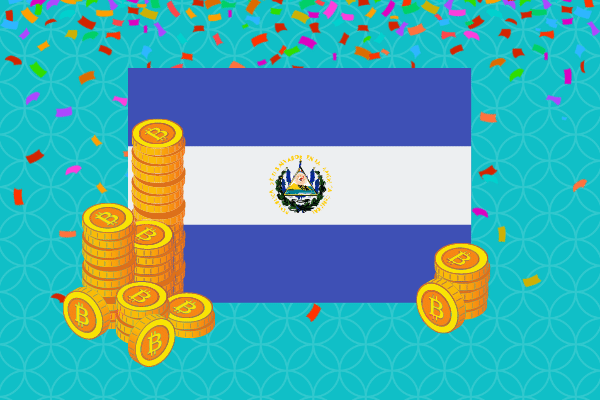
-
With its economy in tatters and its financial system on the brink of imploding, El Salvador is doubling down on its initial Bitcoin bet to try and bail the country out of its current quagmire.
-
If Bitcoin rallies hard, as Bukele and his cadres are hoping, Bitcoin could help alleviate some of El Salvador’s financial woes.
Prior to El Salvador, an impoverished South American country of 6.4 million people, declaring that Bitcoin would be accepted as legal tender within the country, few (if any) people in other parts of the world could have pointed it out on a map.
With its economy in tatters and its financial system on the brink of imploding, El Salvador is doubling down on its initial Bitcoin bet to try and bail the country out of its current quagmire.
To be sure, there are few institutional investors who are likely to participate in El Salvador’s Bitcoin bond sale, and with the price of Bitcoin in decline, it’s even less clear if retail investors globally will have the stomach to bet on a risky asset tied to a basket case economy.
El Salvador is scrambling for funds to repay and refinance its expiring debt and its sovereign bonds have fallen to junk status in the past year as investors worry that its budget deficit, which the IMF says could reach 5% this year, is unsustainable.
The International Monetary Fund has urged El Salvador to revoke Bitcoin’s status as legal tender, but with few options to revive its moribund economy, Bitcoin appears to be the country’s best bet.
El Salvador’s millennial President Nayib Bukele is embarking on the world’s boldest economic experiment, with its 10-year “volcano bond” hoped to raise US$1 billion that he wants to use to finance a new Bitcoin City near the Honduran border that will be powered by geothermal energy from a nearby volcano.
If the bond is oversubscribed, it could help El Salvador avoid an austerity package that would otherwise be implemented by the IMF, or a painful sovereign debt restructuring.
While institutional investors are watching the bond issuance with interest, almost all said they would not participate, noting that buyers were more likely to be retail cryptocurrency investors.
The “volcano bond” will be sold on cryptocurrency exchange Bitfinex, which is closely associated with the controversial dollar-based stablecoin Tether, and is likely to attract existing cryptocurrency investors accustomed to trading on such exchanges.
Bond investors are expected to be able to pay in dollars, Bitcoin or Tether and offer an annual coupon of 6.5%, plus 50% of the gain in the price of Bitcoin after 5 years.
If Bitcoin rallies hard, as Bukele and his cadres are hoping, Bitcoin could help alleviate some of El Salvador’s financial woes.



